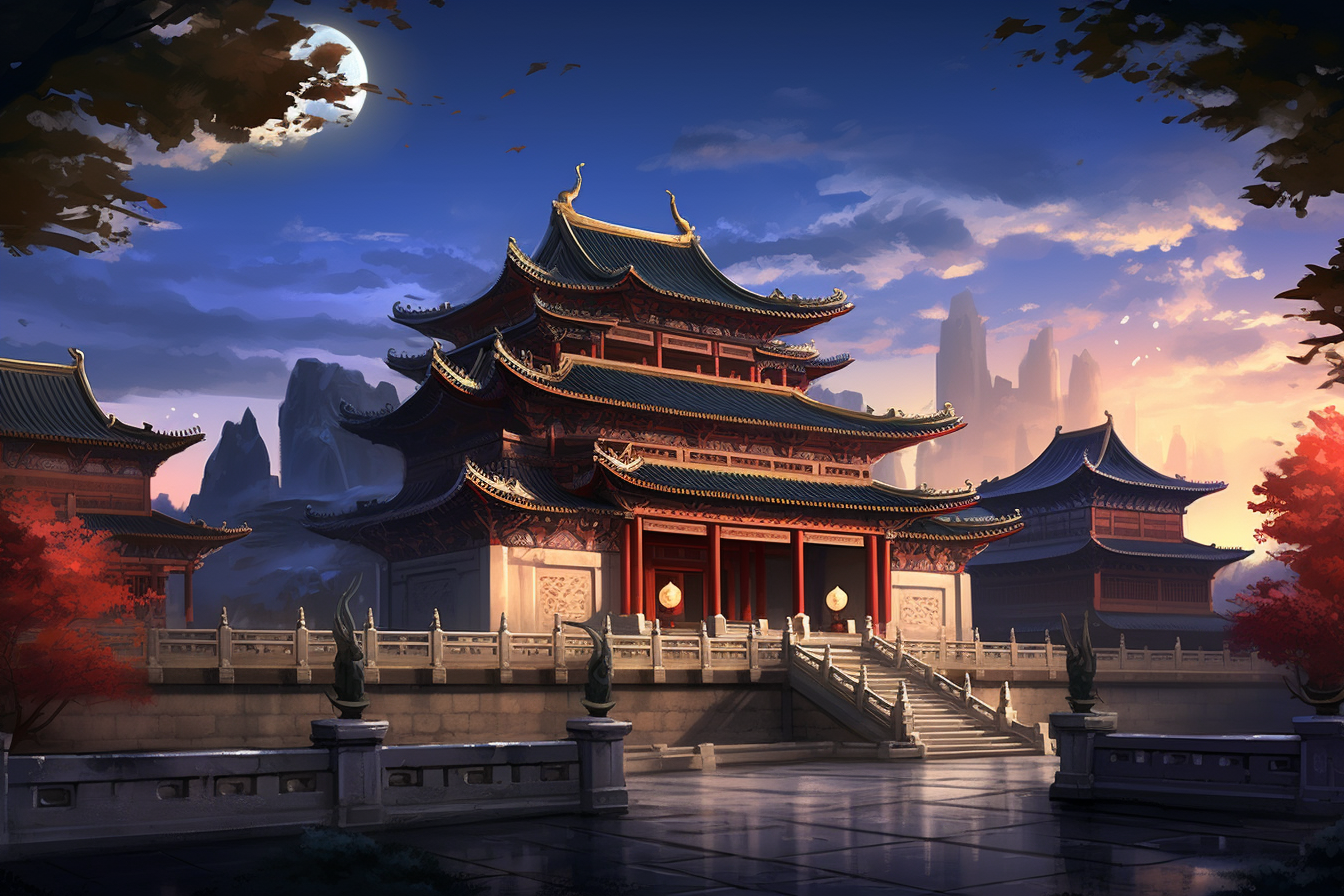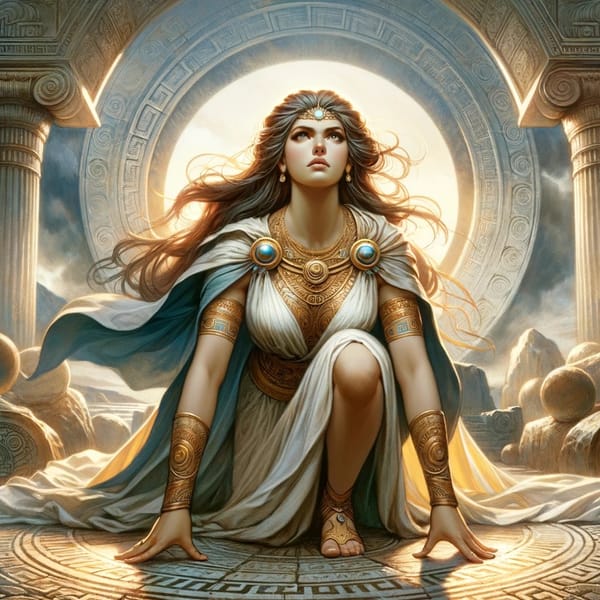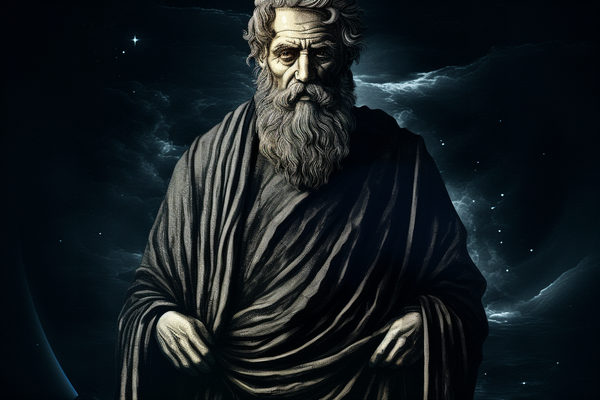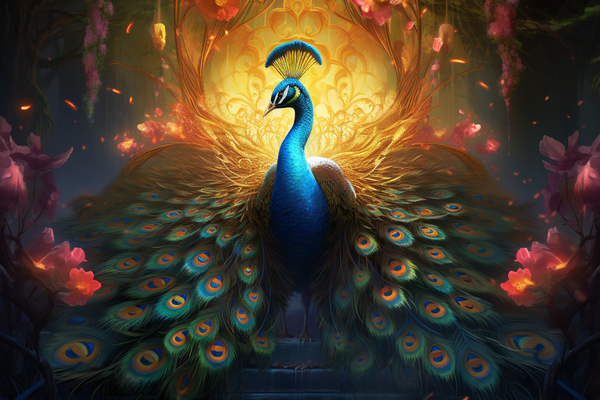A Timeline of China
A broad timeline of China.

Prehistoric China (1.7 Million BC - 2100 BC)
Archaeological evidence suggests that hominids lived in China as far back as 1.7 million years ago. The Peking Man, a Homo erectus fossil, is one of the most famous early human specimens.
Xia Dynasty (2100 BC - 1600 BC)
Traditionally considered China's first dynasty, the Xia Dynasty is largely shrouded in myth. While its existence is debated, it's often cited as the beginning of China's dynastic history.
Shang Dynasty (1600 BC - 1046 BC)
The Shang Dynasty is the earliest dynasty confirmed through archaeological evidence. Known for its advances in metallurgy and writing, the Shang laid the foundations for future Chinese civilisations.
Zhou Dynasty (1046 BC - 256 BC)
The Zhou Dynasty introduced the concept of the "Mandate of Heaven," a divine approval for a ruler. The period is also known for its intellectual flowering, including the works of Confucius and Laozi.
Warring States Period (475 BC - 221 BC)
This period was marked by incessant warfare among seven major states. It was a time of great philosophical and political innovation, including the formulation of Legalism, which would later be adopted by the Qin Dynasty.
Qin Dynasty (221 BC - 206 BC)
The Qin Dynasty unified China for the first time under Emperor Qin Shi Huang. Known for the construction of the Great Wall and the Terracotta Army, the Qin Dynasty set the stage for imperial China but was short-lived.
Han Dynasty (206 BC - 220 AD)
The Han Dynasty is considered a golden age in Chinese history. It saw the codification of Confucianism as the state philosophy and the expansion of the empire's territory and influence.
Three Kingdoms to Tang Dynasty (220 - 907)
This period included the Three Kingdoms, the Jin Dynasty, and the Sui Dynasty, leading up to the Tang Dynasty. The Tang era is noted for its cultural, intellectual, and military achievements, including the invention of woodblock printing and the spread of Buddhism.
Song Dynasty (960 - 1279)
The Song Dynasty is known for its technological innovations, including the use of gunpowder, and its vibrant culture. However, it was also a time of political division and eventually fell to the Mongol invasions.
Yuan Dynasty (1271 - 1368)
Founded by Kublai Khan, the Yuan Dynasty marked the first time China was ruled by a non-Han ethnic group. Despite Mongol rule, the dynasty contributed to the arts and extended the Grand Canal.
Ming Dynasty (1368 - 1644)
The Ming Dynasty is known for its cultural richness and architectural achievements, including the construction of the Forbidden City. It was a period of relative stability and prosperity but ended in rebellion and invasion.
Qing Dynasty (1644 - 1912)
The last imperial dynasty of China, the Qing were Manchu rulers. Despite initial prosperity, the dynasty faced internal decay and external pressures, leading to the Opium Wars and the Boxer Rebellion.
Republic of China (1912 - 1949)
The fall of the Qing Dynasty led to the establishment of the Republic of China. The period was marked by political instability, warlord rule, and the conflict between the Nationalists and Communists.
Japanese Occupation (1937 - 1945)
Japan invaded China, leading to a brutal occupation. The conflict merged into World War II, and China was one of the Allied Powers. The war devastated China but also weakened the ruling Nationalist Party.
End of Japanese Occupation (1945)
Japan's surrender in World War II led to the end of its occupation of China. This event set the stage for the resumption of the Chinese Civil War between the Chinese Nationalist Party (Kuomintang) and the Chinese Communist Party.
Founding of the People's Republic of China (1949)
After years of civil war, the Communist Party, led by Mao Zedong, declared the establishment of the People's Republic of China. The Nationalists retreated to Taiwan, which they continued to govern.
Great Leap Forward (1958 - 1961)
Initiated by Mao Zedong, the Great Leap Forward aimed to rapidly transform China from an agrarian society into a socialist society through rapid industrialisation and collectivisation. However, it led to the Great Chinese Famine, resulting in an estimated 15 to 45 million deaths.
Cultural Revolution (1966 - 1976)
Launched by Mao Zedong, the Cultural Revolution aimed to preserve communist ideology and remove capitalist and traditional elements from society. It led to widespread persecution, public humiliations, and millions of deaths, devastating the country's cultural heritage.
Economic Reforms and Opening Up (1978 - Present)
Initiated by Deng Xiaoping, the economic reforms marked a departure from Maoist ideology. The reforms have been incredibly successful, transforming China into the world's second-largest economy. China has lifted hundreds of millions of people out of poverty and has become a global leader in technology and manufacturing.
One-Child Policy (1979 - 2015)
Introduced to control population growth, the One-Child Policy led to forced abortions, sterilisations, and a skewed gender ratio due to the cultural preference for boys. It has had long-lasting social and psychological impacts.
Technological Advancements (1990s - Present)
China has made significant strides in technology, from pioneering 5G networks to making advancements in artificial intelligence and renewable energy. The country has also made notable contributions to global scientific research.
Belt and Road Initiative (2013 - Present)
Launched by President Xi Jinping, this ambitious project aims to improve global trade connectivity and has received support from over 60 countries. It's seen as a modern Silk Road, enhancing China's global influence.
Space Exploration (2003 - Present)
China has been making significant contributions to space technology. In 2003, it became the third country to send a human into space. In 2019, China's Chang'e 4 became the first mission to land on the far side of the Moon.
Human Rights Violations (1949 - Present)
China has been criticised for its human rights record, including restrictions on freedom of speech, assembly, and religion. The government has also been accused of workers' rights violations and suppressing labour movements.
Uyghur Crisis (2014 - Present)
China has been internationally criticised for its treatment of the Uyghur Muslim minority in Xinjiang. Accusations include forced labour, cultural assimilation, and mass detentions in so-called "reeducation camps."
Social Credit System (2014 - Present)
Introduced as a national reputation system, the Social Credit System has raised concerns over mass surveillance and the erosion of individual privacy.





